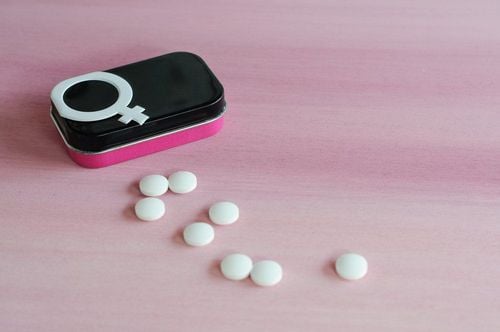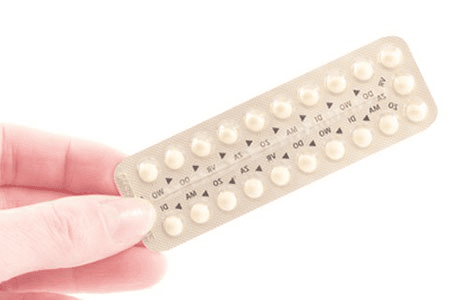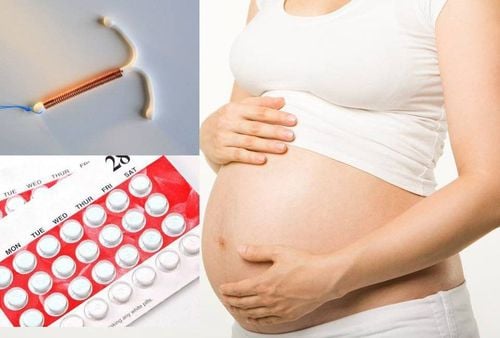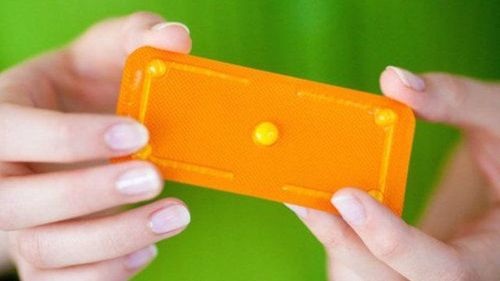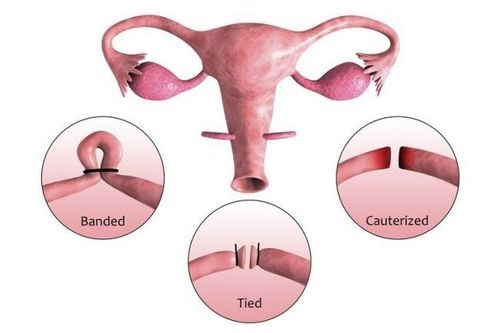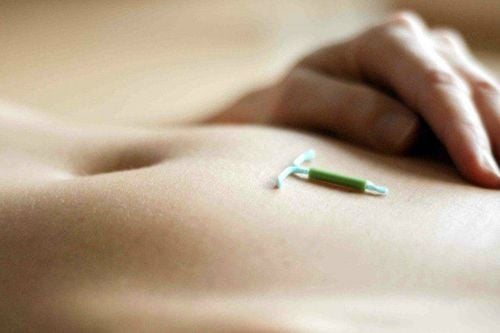This is an automatically translated article.
Birth control pills are a method that many women, including women after giving birth, trust. Because it is convenient and effective. However, many mothers do not understand how to use emergency contraception after giving birth to ensure safety during breastfeeding?
1. What is the emergency contraceptive pill?
Emergency contraceptive pills (ECPs) refer to methods that can help prevent pregnancy after unprotected or inadequately protected sex. Emergency contraception will not protect you from sexually transmitted infections (STIs).
Emergency contraceptive pills (ECPs) are the most commonly used method. One type of ECPs contains the hormone levonorgestrel (a type of progestin). These pills are available without a prescription for women and men 17 years of age and older. They are sold under the brand names Plan B One-Step, Next Choice One Dose, Next Choice, and Levonorgestrel.
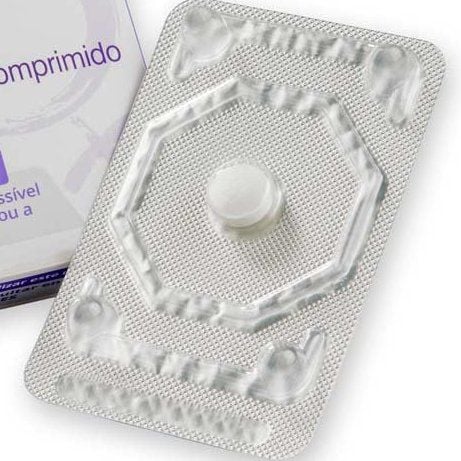
Thuốc tránh thai khẩn cấp không có tác dụng với các bệnh lây nhiễm qua đường tình dục
2. How emergency contraceptive pills (ECPs) work
ECPs are a hormonal drug regimen that can prevent pregnancy after unprotected intercourse by temporarily stopping ovulation, interfering with fertilization, or thinning the lining of the uterus to prevent pregnancy. prevent implantation of fertilized eggs.
It takes about five days for a fertilized egg to implant in the uterus. If you use ECPs after a fertilized egg has implanted in your uterus, they will not disrupt a pregnancy and there is no evidence that they will harm a developing embryo.
3. In what cases should emergency contraception be used?
If you have vaginal intercourse without using any birth control or if the method of contraception is unsuccessful or used incorrectly, the emergency contraceptive pill will significantly reduce your chances of getting pregnant yours. Consider using it, for example, if you don't want to get pregnant and you find yourself in any of the following situations:
Your partner's condom breaks or comes off and he ejaculates inside the vagina religion. Your diaphragm or cervical cap has slipped out of place and your partner ejaculated inside your vagina, or you removed the device too soon after intercourse. You have sex after forgetting to take your birth control pill or using the patch or ring incorrectly (for example, you put on the patch on the wrong day). You had sex when you were late for your next birth control shot. You're using a fertility-aware birth control method and realize you've miscalculated which days of your cycle are fertile and have sex during your fertile period. You intended to use the withdrawal method and your partner did not withdraw in time. You have sex without using any contraception. In addition, ECPs are valuable for women who may become pregnant as a result of sexual assault. If a raped woman goes to a medical facility, she should be offered ECPs. But since this is not always the case, women should be aware that they can request ECPs and purchase them themselves if needed.
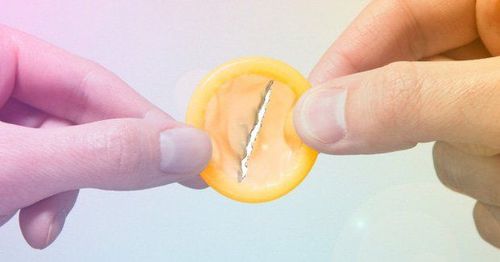
Bao cao su bị rách khi quan hệ khiến bạn cần sử dụng thuốc tránh thai khẩn cấp
4. Efficacy of emergency contraception after childbirth
Progestin-only ECPs reduce the risk of pregnancy by about 88% if you take your first dose within 72 hours (three days) of unprotected sex. Using combined oral contraceptives for emergency contraception reduces your risk by about 75% if you start within 72 hours.
The sooner you take ECPs after unprotected sex, the more effective they are. That said, they can still be used to help prevent pregnancy up to 120 hours (five days) after unprotected sex.
Remember that while ECPs are quite effective in emergency contraception after childbirth if you take them promptly, they are not nearly as effective as regular use such as birth control pills, patches, rings, injections , an IUD or even a condom .
5. Use a copper IUD for effective emergency contraception
Copper IUDs reduce the risk of pregnancy by about 99% if inserted within five days of unprotected sex. It is the most effective emergency contraception and will continue to provide excellent protection from pregnancy. However, not all women are suitable for the IUD.
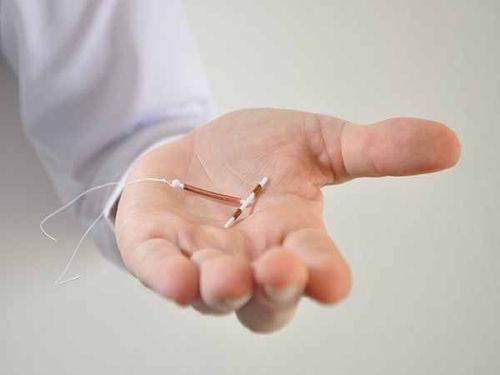
Vòng tránh thai bằng đồng đem lại hiệu quả tránh thai cao
6. How do I get emergency contraception?
Consider keeping a pack of ECPs, especially if you live in an area where they are not readily available. So you will have them in case you need them and be able to use them immediately in the most productive period. Not all pharmacies carry ECPs, so do your research.
7. How much does the emergency contraceptive pill cost?
You may have to spend from 700 thousand to more than 1 million dong for emergency contraception when bought at the pharmacy. You can buy ECPs through a family planning clinic for slightly less.

Chi phí cho thuốc tránh thai khẩn cấp dao động từ 700 nghìn đến hơn 1 triệu đồng
8. How to use emergency contraception after childbirth
ECPs have been called "morning pills", but this is not a good name because you shouldn't wait until the next morning to take it if you can. And even if you can't get them the next morning, there's still time.
You should take the pill as soon as possible after having unprotected sex. The longer you wait, the less likely it is to work, but you can still take it up to 120 hours (five days) after having unprotected sex.
9. If I'm already on birth control pills, can I take my own prescription?
It is best to use Ella or the drug levonorgestrel because they are more effective and cause fewer side effects. Several daily combined oral contraceptives and even some mini-pills have been shown to work for emergency contraception.
First you will need to find out if your brand is a safe one for emergency contraception and how many pills you will need to take for each dose. Make sure you have enough medicine to complete each dose and that you are taking the correct one, especially if they are two- or three-phase. Also, keep in mind that the last seven pills in a pack of 28 combination pills do not contain any hormones.
Do not take more medicine than recommended. Drinking more probably won't reduce your chances of getting pregnant, but will also make you more prone to nausea and vomiting.
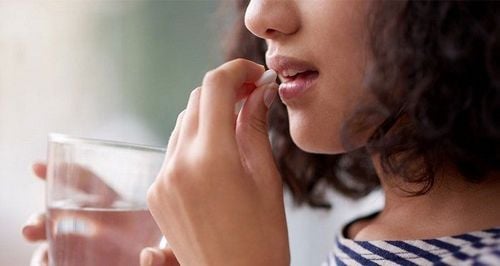
Bạn cần uống thuốc theo chỉ định của bác sĩ
10. Side effects of ECPs
Millions of women have used ECsPs and there have been no reports of serious complications that may be associated with their use. However, you may still experience some unpleasant side effects.
About half of women including women who take the combined hormonal emergency contraceptive pill feel a little nauseous for a day or two after giving birth, and about 20% experience vomiting. (These symptoms are less common in women taking a pill specially formulated for emergency contraception that contains only a progestin.)
If you are planning to use a combination pill, some healthcare professionals recommend it. anti-nausea an hour before the first dose and usually two 25mg tablets of meclizine HCl.
However, not everyone experiences nausea and anti-nausea medications can also have side effects, especially drowsiness. If you take meclizine, read the label and make sure you don't need to drive a vehicle or operate heavy machinery.
Less common side effects of ECPs include dizziness, fatigue, headache, tightness in the chest, and abdominal cramps. These side effects should last no more than a day or two. You may also experience bleeding or unusual bleeding for a few days.
11. What should I do if I vomit right after taking the medicine?
If you vomit within two hours of taking a dose, call your caregiver for advice, you may need to take another dose. If it takes longer than that, you're probably fine, but you may want to take some anti-nausea medicine an hour before your next dose (if you're taking more than one dose).
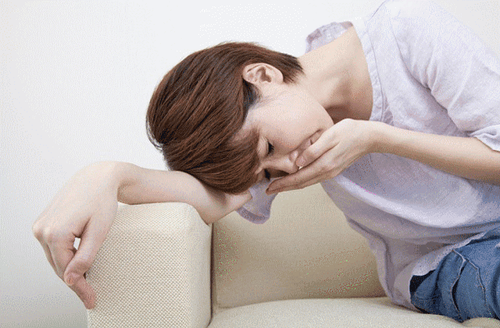
Bạn có thể bị nôn sau khi uống thuốc tránh thai khẩn cấp
12. Are there any medications that can make ECPs less effective?
Some medicines and herbal preparations can affect the way birth control pills work. (The opposite is also true - birth control pills can make some medicines more or less powerful.)
Certain substances known or suspected to make birth control pills less effective include herbs. Hypericum perforatum, the antibiotic rifampin, an antifungal medicine called griseofulvin, a sedative, some HIV medications, and some anti-seizure medications.
Talk to your healthcare provider if you are taking any of these medicines. No one knows how they might affect the effectiveness of ECPs, but your caregiver may recommend a higher dose of ECPs.
13. Who can use emergency contraception?
Any woman can take ECPs. Because, the IUD is not recommended if you are at risk of getting a sexually transmitted infection. You may be asked to have a sensitive urine or blood test to make sure you are not pregnant before the IUD is inserted.
ECPs are not effective for women who are significantly overweight. If you are obese, the IUD may be a better choice.
14. Is it safe to use emergency contraception if I'm breastfeeding?
IUDs and ECPs (both progestin-only and combination regimens) are considered compatible and are emergency contraceptives for nursing mothers.
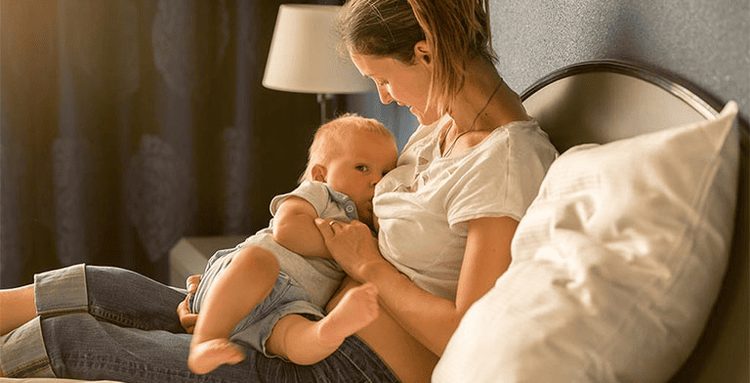
Các mẹ đang cho con bú hoàn toàn có thể sử dụng thuốc tránh thai
15. Will using emergency contraception affect my chances of getting pregnant?
No, using emergency contraception has no effect on your future fertility.
16. How soon will I get my period?
Most women get their period on schedule, within a month of taking ECPs, although it's not uncommon for your first period to come a week earlier or later than you expected.
If you have not had a period within a week of normal and it has been ten days or more since the day you had unprotected sex, you should take a pregnancy test. (If you take the test too soon, you may get a negative result even if you are pregnant.)
Contact your healthcare provider if the test is positive or if the test is negative and your menstrual period you still don't come after a week or so.
17. When should I call my caregiver after taking emergency contraception?
You have severe pain in your abdomen or pelvis or pain in your legs. You continue to have unusual bleeding or spotting after a few days, or cramping after a week or so. You may have been exposed to an STI and need to be tested. You are not satisfied with the method of birth control you are using and you want to choose another method of birth control. If you have an IUD, you should have a follow-up visit after your next period or if your period doesn't arrive on time.
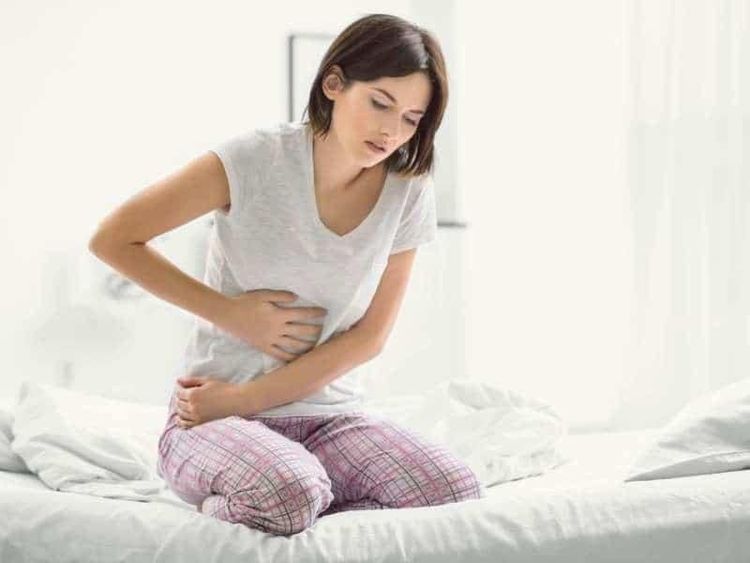
Đau bụng dữ dội sau khi uống thuốc tránh thai là dấu hiệu bạn cần chú ý
18. Where can I get more information about postpartum emergency contraception?
For more information, include the exact recommended dosage for each brand of medicine and a list of health professionals and clinics in your area who prescribe the medicine.
Emergency contraceptive pills bring high effectiveness in preventing pregnancy, but can also affect the fertility of the user if abused for a long time. Therefore, women should apply safer methods such as using condoms, placing an IUD, taking oral contraceptives every day, etc. If taking emergency contraceptive pills due to force majeure, Ms. You should carefully read the instructions for use of the drug, take it as soon as possible after sex, take the full dose and at the prescribed time.
Please dial HOTLINE for more information or register for an appointment HERE. Download MyVinmec app to make appointments faster and to manage your bookings easily.
Reference source: babycenter.com




